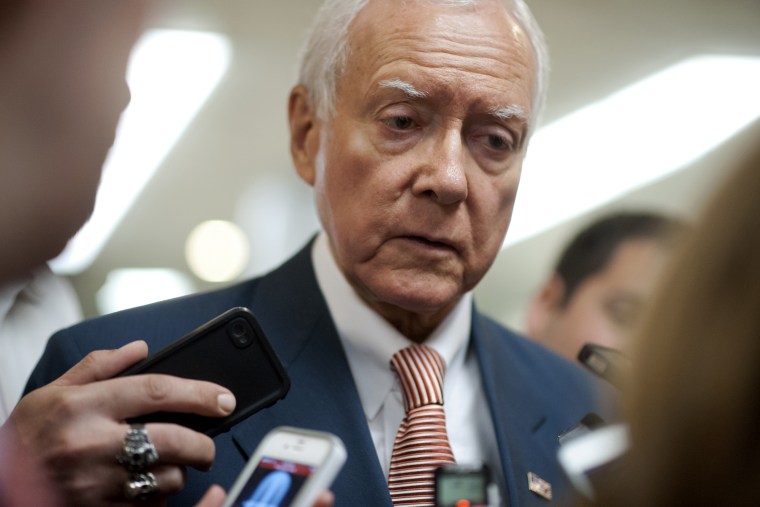Sen. Orrin Hatch (R-Utah) has a curious habit of writing op-eds during fights over Supreme Court nominees. That would be less of a problem if the senator's opinion pieces weren't so badly flawed.
Two years ago, for example, Hatch wrote an op-ed that mentioned a meeting he'd held with then-Supreme Court nominee Merrick Garland. The trouble was, the Utah Republican hadn't actually held such a meeting, and the newspaper that ran the piece found it necessary to pull the piece from its website.
More recently, Hatch wrote another piece making the case that there was no point in Democrats asking the FBI to re-open its background check into Brett Kavanaugh. "Democrats point to the Anita Hill investigation as an analogue, but Hill was a federal employee alleging misconduct by a superior on federal property," the senator wrote. "There was a clear federal nexus. No such nexus exists here."
That was soon proven wrong, too. Officials didn't need a "nexus," they needed a presidential directive to re-open the FBI process. Late last week, that's what happened.
Today, Hatch thought he'd give it another shot with an op-ed in the Wall Street Journal.
A notable shift occurred in the left's anti-Kavanaugh campaign over the weekend. Attention has turned away from Christine Blasey Ford's allegations of sexual assault -- the entire reason for last week's hearing and the ensuing delay in Judge Brett Kavanaugh's confirmation vote -- and toward his behavior at the hearing.We're starting to see arguments like the following: Even if Judge Kavanaugh is innocent, what he said at the hearing, and how he said it, is disqualifying.
The debate isn't especially complicated. As part of his defense, the Supreme Court nominee dropped the mask of a neutral judge and concocted a conspiracy theory, accusing Democrats of seeking "revenge on behalf of the Clintons" and targeting him as retribution for the 2016 election. The display sparked bipartisan criticism for a reason.
Even Kavanaugh himself said in 2015 that judges must keep "emotions in check" and not be a "political partisan." Last week, he failed on both counts.
In his sworn testimony, Kavanaugh has also made a wide variety of claims that appeared to be false.
It's against this backdrop that Hatch is complaining that "what [Kavanaugh] said at the hearing, and how he said it," is being held against him. Well, yes, that's pretty much how this works. What a Supreme Court nominee says at a hearing counts.
"I for one have had enough of this charade," Hatch concluded.
Yeah, me too, though I'm thinking of a very different charade.
